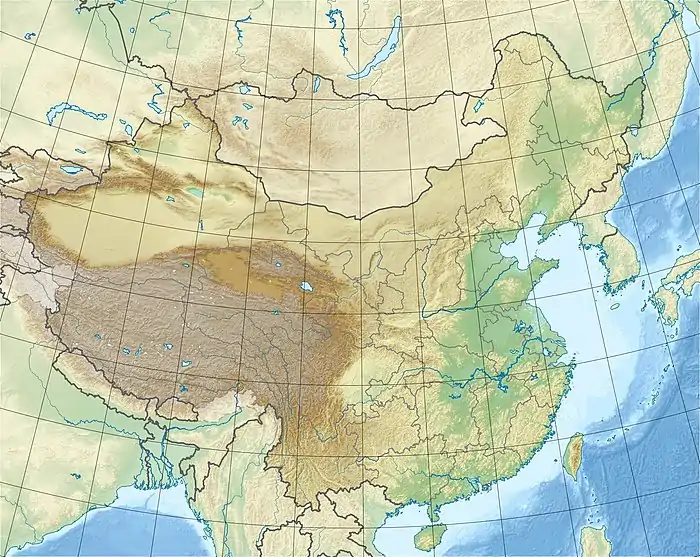| Quxue Dam | |
|---|---|
 Location of Quxue Dam in China | |
| Country | China |
| Location | Dêrong County, Garzê Tibetan Autonomous Prefecture, Sichuan |
| Coordinates | 28°25′20.91″N 99°19′23.64″E / 28.4224750°N 99.3232333°E |
| Purpose | Power |
| Status | Operational |
| Construction began | 2013 |
| Opening date | 2016 |
| Dam and spillways | |
| Type of dam | Embankment, rock-fill with asphalt concrete core |
| Impounds | Shoqu River |
| Height | 164.2 m (539 ft) |
| Length | 219.85 m (721.3 ft) |
| Width (crest) | 15 m (49 ft) |
| Reservoir | |
| Total capacity | 132,600,000 m3 (107,500 acre⋅ft) |
| Commission date | 2016 |
| Type | Conventional |
| Turbines | 2 x 123 MW Francis-type |
| Installed capacity | 246 MW |
The Quxue Dam is a 174 m tall rock-fill embankment dam on the Shuoqu River in Dêrong County of Sichuan Province, China.
the Quxue Dam has a narrow canyon with very steep abutments supporting its superstructure.
The primary purpose of the dam is hydroelectric power generation and it supports a 246 MW power station.
Design and construction
The dam is situated in a deep canyon which has an asymmetrical “V” shape. The slope of the left and right banks is around 70°, getting steeper towards the top. Made of mobile sediment, the depth of the alluvial river overburden (waste and spoil) is around 30 m at the dam site.
The crest length of the dam is 220 m with the crest width being 15 m across. The dam was designed to have a slope of 1.9H:1V upstream and an average slope of 1.85H:1V downstream.
Construction on the dam began in 2013 and the river was diverted around the construction site in February 2014. The power station was completed in 2016.[1][2][3]
See also
References
- ↑ "Datang Group to learn dam closure success (Figure)" (in Chinese). Polaris Power Network News. 10 February 2014. Retrieved 18 June 2014.
- ↑ "To learn Hydropower: Hydropower Construction march played plateau" (in Chinese). China Datang Corporation. Archived from the original on 19 August 2013. Retrieved 18 June 2014.
- ↑ Fan, Qiang; Tian, Zhong; Wang, Wei (October 2010). "Study on Risk Assessment and Early Warning of Flood-Affected Areas when a Dam Break Occurs in a Mountain River". Water. 10 (10): 1369. doi:10.3390/w10101369.